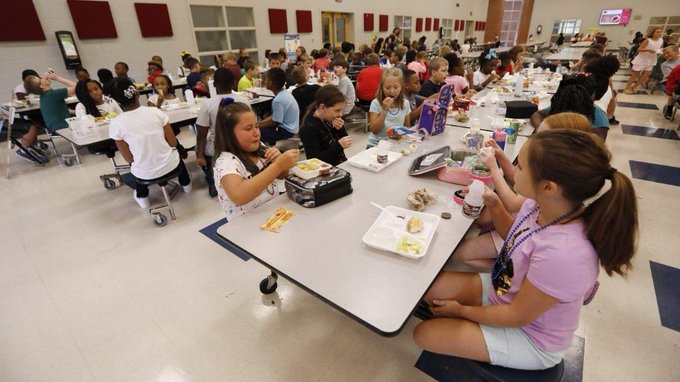Ottawa/CMEDIA: Adhering to its years-old election campaign pledge, the federal Liberal government reportedly committed Monday to allocate $1 billion over five years to fund a new national school food program.
Included in the upcoming April 16 budget, the funding is being launched with the aim of expanding existing school food programs, providing meals to an additional 400,000 Canadian kids a year.
Backed by members of cabinet and caucus, Canada Prime Minister Justin Trudeau and Deputy Prime Minister and Finance Minister Chrystia Freeland, as part of their latest pre-budget press tour, made the announcement in Scarborough.
Having framed this funding as a safety net for kids and families facing food insecurity, Trudeau promised to work with provinces, territories, and Indigenous partners on implementation , as he has with other recent pre-budget pledges.
“During the long weekend, a lot of people spent time with their family and shared good meals together, and around the kitchen table a lot of people were talking about grocery prices that are still too high. Tomorrow, kids will be going back to school, and some of them won’t have enough to eat. That impacts their health and their opportunities to learn and grow,” Trudeau was reported saying.
“Like we said last week, this year’s upcoming budget will be all about fairness. Fairness for every generation. That of course includes and starts with children and families. We all want kids to have the best start in life, including the most vulnerable,” he said.
The federal government’s promise during the 2021 election campaign to “develop a National School Food Policy and work towards a national school nutritious meal program with a $1 billion dollar investment over five years.” was mentioned in the 2022 federal budget with no funding attached, and left out again in 2023.
Due to an influx in students accessing school food programs combined with skyrocketing food costs without proportional program funding increases jeopardised the future of schools’ ability to keep offering meals to students, warned the advocates.
Facilitated largely through provincial and territorial government funding, private sector and community donations, and volunteers’ time, these programs, said the advocates, are also in need of substantial increases against the impacts of inflation
Although school meal programs already existed in varying forms in all provinces and territories, according to federal statistics they only reach approximately 21 percent of school-age children
Following consultations regarding the expansion of Canadian school food programs by the government to help guide a policy framework, Freeland said that she wants to see funding for these programs roll out the door, “as early as the 2024-2025 school year.”
Noting Canada is lagging behind other G7 countries when it comes to enacting a national school meal program, NDP Leader Jagmeet Singh also called on the Liberals earlier on Monday in a press conference to make good on this pledge.
“There are so many families that are just struggling with food security…kids are going hungry, and when kids are hungry, they can’t focus on school…on having fun…on being a kid, and it should not happen…We need stable funding from the federal government to ensure that every kid going to school in our country, no matter where they live, no matter what school they go to, is getting a nutritious meal,” Singh said.





